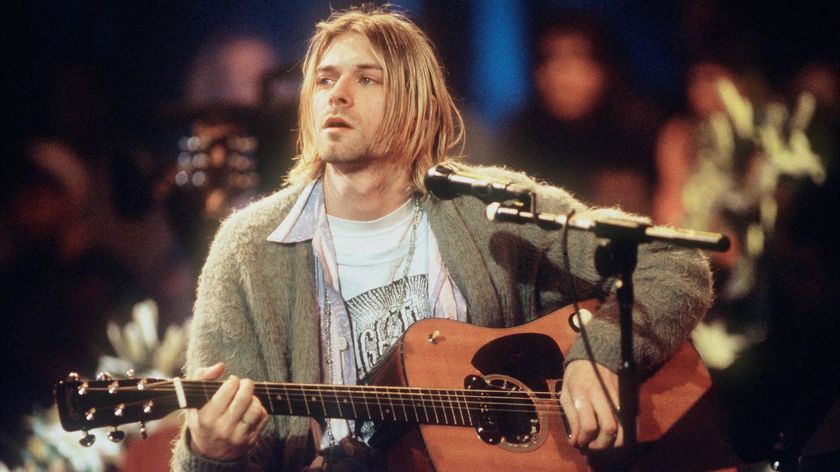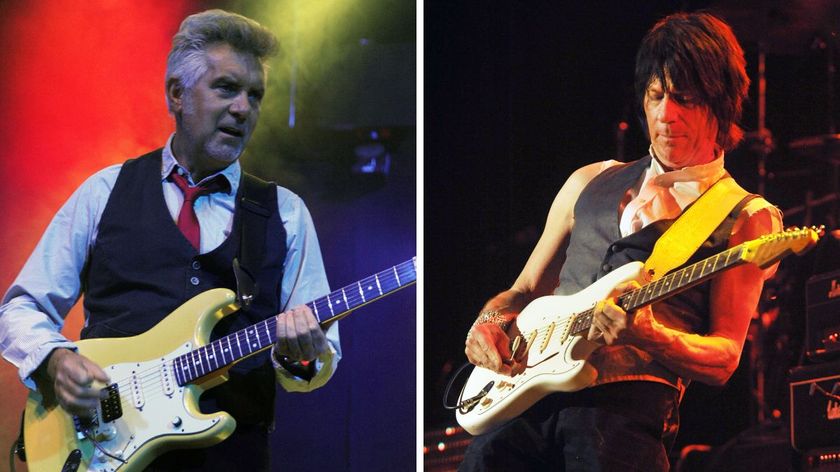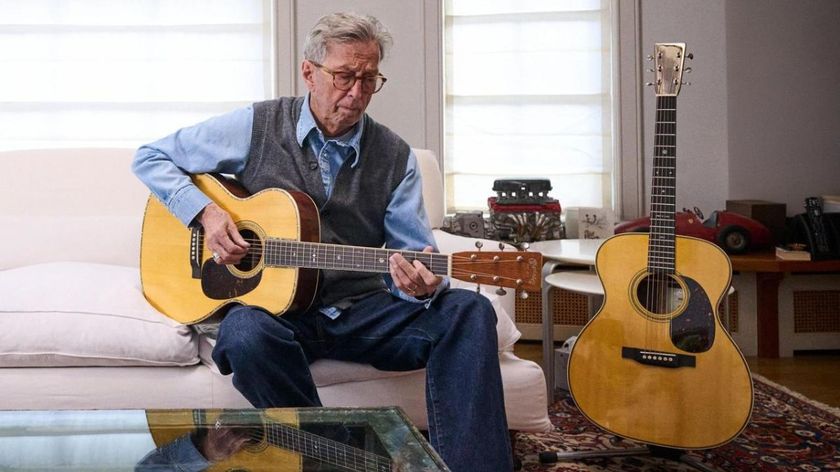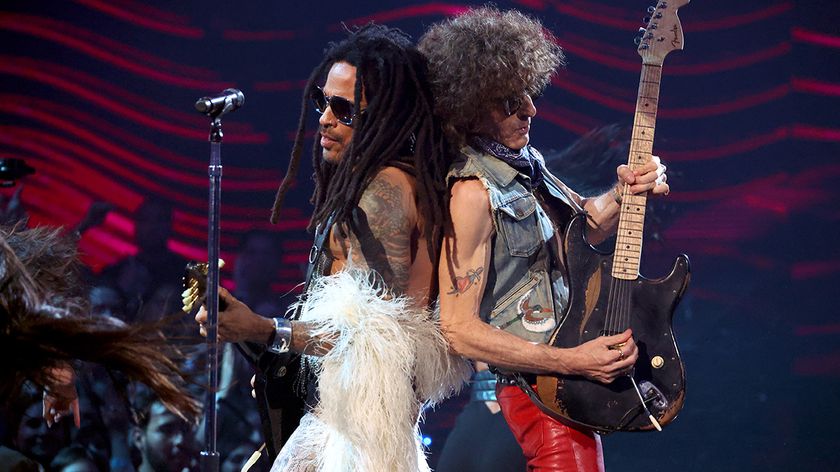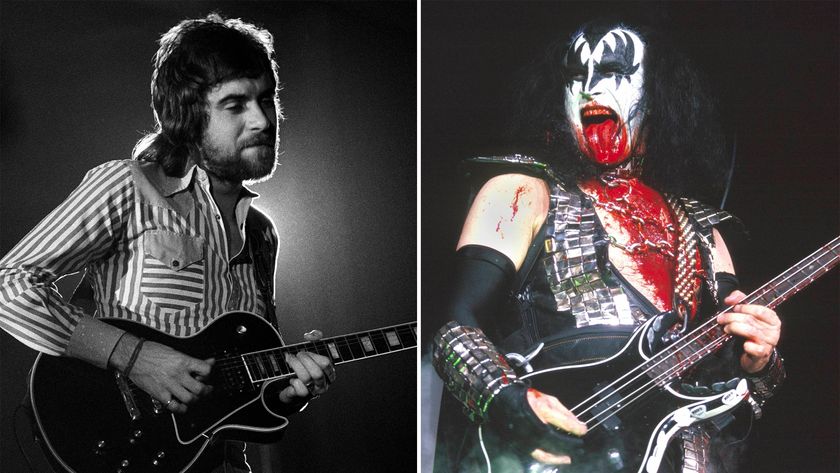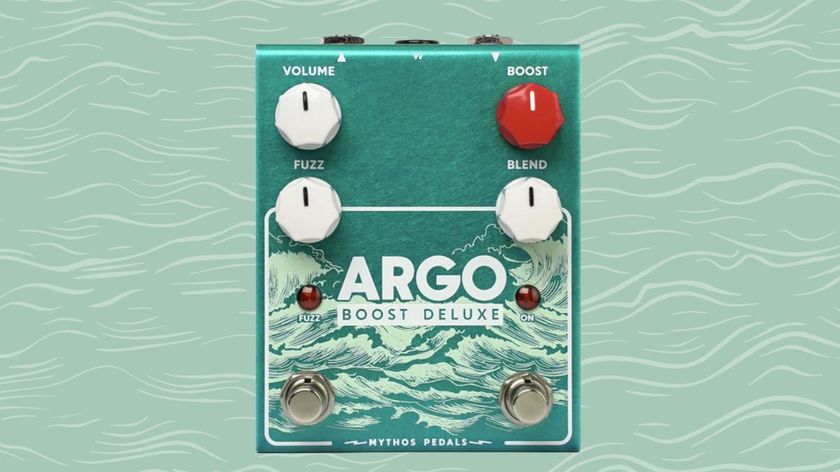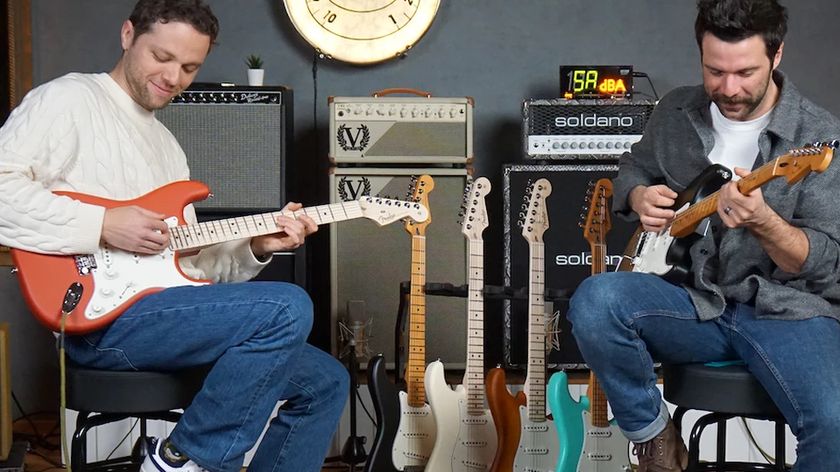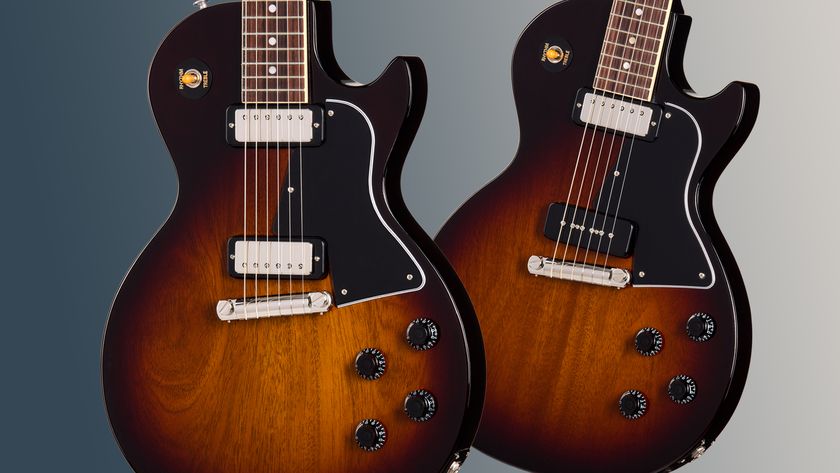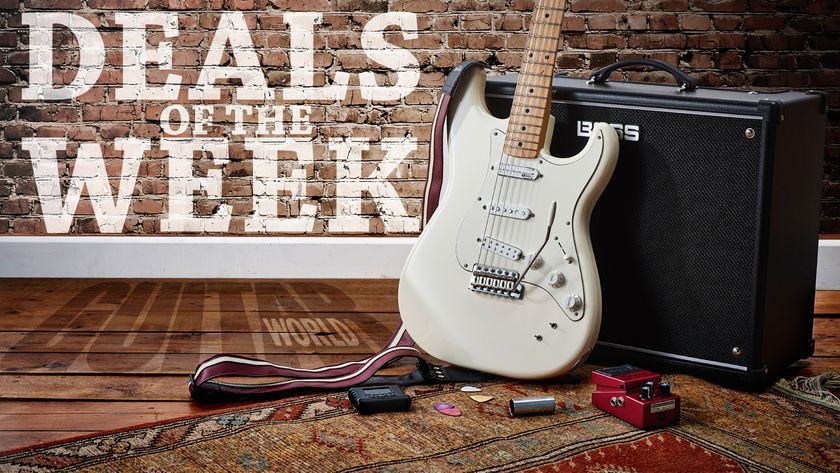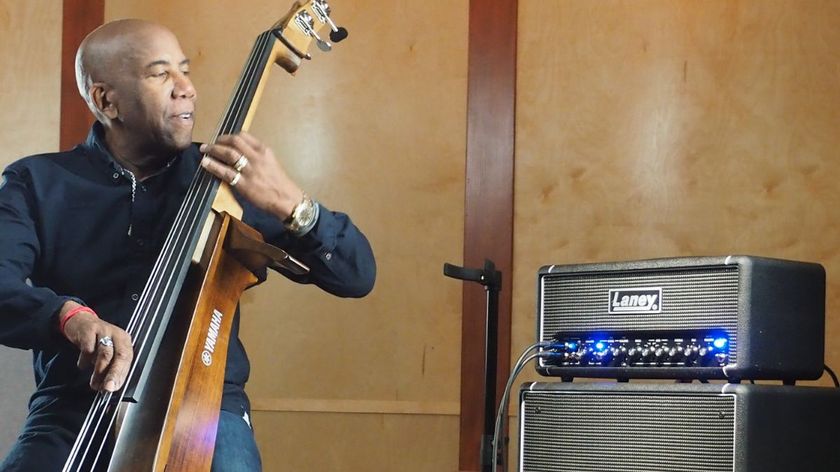Zepparella's Gretchen Menn Discusses Her 'Inferno'-Inspired Album, 'Abandon All Hope'

Zepparella guitarist Gretchen Menn’s new conceptual work, Abandon All Hope, is an eclectic study of guitar, art and literature.
The instrumental album, which puts elements of classical and romantic composition through a prog- and blues-rock blender, was co-produced by Daniele Gottardo (Steve Vai's favorite new guitarist) and—most interesting of all—based on Dante Alighieri's epic 14th-century poem, Inferno.
You could say it's a guitar album that's 600 years in the making—with a masterful, 21st-century approach.
I recently spoke to Menn about Abandon All Hope, her gear and more.
How did the Abandon All Hope project begin?
I’ve always liked the idea of art that incorporates other art and how you don’t have to just make music but can also make images that accompany it. I’m the daughter of a writer and grew up reading a lot of classic literature. I started playing around with the idea of doing something that would be the music to a work of literature I really liked.
Around that same time, Guitar Player Editor-in-Chief Michael Molenda reached out about doing a collaboration. I remember we met in a coffee shop and he handed me this sheet of paper that said, “Dante’s Inferno: A Journey in 11 Different Musical Moods,” and I was just blown away. It was one of those rare moments where I knew exactly what I was going to be doing for the next few years of my life. That’s how it came about.
You said you pored over orchestral scores and listened to a lot of music to prepare for this album. How did that help you?
I read scores every day, and where some people do crossword puzzles, I do counterpoint exercises [laughs]. But I didn’t want to take “x” from Led Zeppelin, “y” from Igor Stravinsky and “z” from Kate Bush. Instead, I listened to whatever inspired me. I’d listen to Stravinsky’s “Rite of Spring,” but I also listened to Roger Waters’ Amused to Death –a concept album he did with Jeff Beck. I really wanted to explore structure and the intense interplay between instruments.
Get The Pick Newsletter
All the latest guitar news, interviews, lessons, reviews, deals and more, direct to your inbox!
Let’s discuss a few tracks from Abandon All Hope, starting with “Hound of Hades."
Every instrument has a track where it's the main character, and “Hound of Hades” is one that came out of a rock riff. I wanted a rocking riff and then did improvisation over it. Very shortly thereafter was when the concept came from Michael, and I knew I had an idea for it.
What about “Lake of Ice”?
A lot of what I did for this album was draw from the text and libretto [by Molenda]. It can be a challenge making things sound different, so I went with the emotional aspect of it. I went in with the idea of making something cold and icy. That’s why the strings are pizzicato, atonal and with a relentless classical guitar in arpeggios.
Are there any tracks that stand out to you as particularly special?
“Grace” is special because it was the last track I wrote, and I already had a clear idea of how it should go, even before I started writing it. It was also a piece of semi-redemption because it was the one where I got to get out of the inferno for a little bit and do something different.
Dazed and Confused by Zepparella from Ms Zepparella on Vimeo.
What’s your live setup like?
It depends on the context. For Zepparella, the gear is pretty much laid out for me with what Jimmy [Page] used. I have two Les Pauls; there's my main Standard that I play for most of the show and another limited-edition Manhattan Standard that I use for "Kashmir." I also have a Danelectro for “In My Time of Dying." I play through a 1976 Marshall JMP as well as a Two Rock Bi-Onyx.
For my original music, I did guitar tracking at home using an ENGL 670 Special Edition with EL34s. Then I took it into a proper studio for re-amping where I had a four-amp setup: a Fender Deluxe from '66, my Marshall JMP, the ENGL and the Two Rock Bi-Onyx. On the new album, I used my Ernie Ball Music Man Silhouette Special (with DiMarzio single coil pickups) for the vast majority of electric guitar parts.
I also used my Les Paul on "Hound of Hades" and "Beast." "Lake of Ice" and the first part of "Grace" feature my Kenny Hill Ruck classical guitar. The guitar delays were from my Providence Chrono Delay.
Did you always know music would be your calling?
I first picked up the guitar as a teenager but wasn’t serious about it because of the stress and pressure with school. By the time I went to college and started thinking about what I wanted to do with my life and declaring a major, I realized what I loved more than English and sociology was music. It was decision I made from the heart. I also have to give huge credit to my classical guitar teacher, Phillip de Fremery, who was a student under [Andrés] Segovia.
I remember taking lessons from him without any real aspiration of becoming a professional musician and making a comment about it being too late for me to actually do anything about it. He wasn’t having any of it. He trained me from day one like I could and might become a professional musician. It’s sometimes hard to go back and say which things were key to getting you on a specific direction, but my gut instinct is that if he had not had that belief in me, I might have never allowed myself to think it was possible.
Is there a message you’d like people to take people from listening to Abandon All Hope?
If there’s anything I hope people listening to my music—or to anyone else’s—can take away from it, it's that no matter how bad things can be in the world, we have this incredible gift we can share with each other.
Music can inspire, unite, comfort and give us a sense of purpose. I can’t imagine anything that has more potential for good. I hope people will remember just how wonderful music can be and that we never forget just how to listen.
For more about Menn, visit gretchenmenn.com. For more about Zepparella, visit zepparella.com.
Photo: Max Crace (provided by the artist)
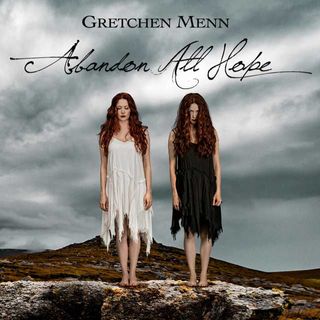
James Wood is a writer, musician and self-proclaimed metalhead who maintains his own website, GoJimmyGo.net. His articles and interviews are written on a variety of topics with passion and humor. You can follow him on Twitter @JimEWood.
James is a guitarist and freelance writer who's interviewed some of the biggest names in music. He is the author of four books and his writing credits include work for Guitar World, AXS and Yahoo! as well as for his hometown newspaper where he writes on a variety of topics with both passion and humor. As a guitarist, he's performed everywhere from local bars and nightclubs to some of the biggest stages in front of thousands of music fans.
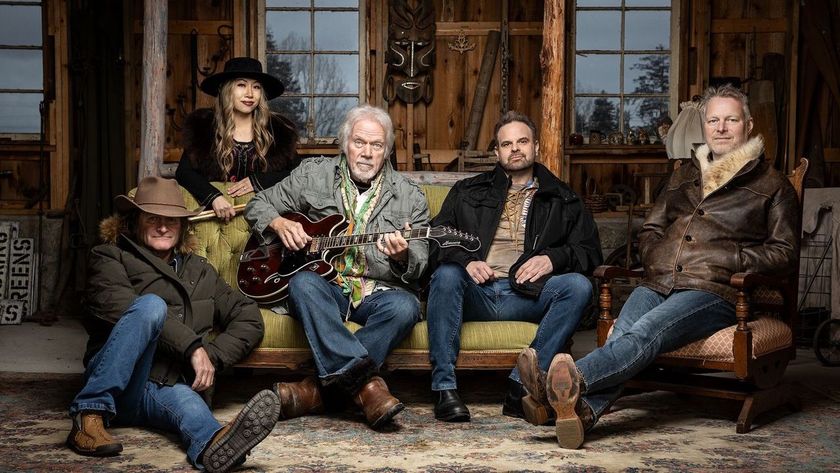
"The BTO sound is BACK!!" Bachman-Turner Overdrive release first new material in over 25 years – and it features a Neil Young guitar solo
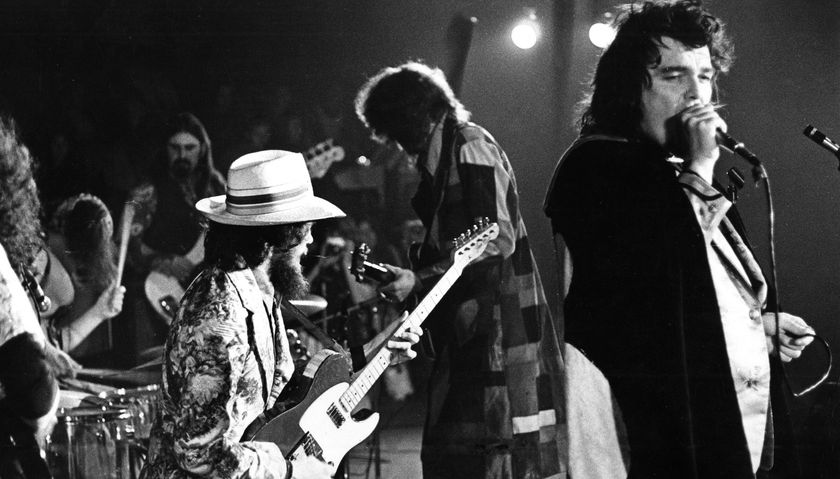
“He would beat the crap out of the guitar. The result can best be described as Jackson Pollock trying to play like John Lee Hooker”: Aggressively bizarre, Captain Beefheart's Trout Mask Replica remains one of the craziest guitar-driven albums ever made

